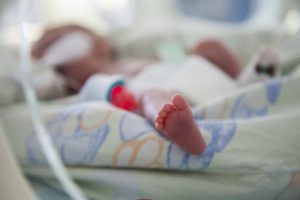 We would like to share this newsletter from our popular speaker; Bobbi Pineda. Her work in the Washington University OT NICU lab centers around bridging the gap in services from NICU to home, so that infants can continue to receive quality and continuous therapy services to improve health and well-being. The OT NICU lab is part of Washington University, where she mentors OT graduate students on neonatal therapy and aids them in conducting clinical research that can impact the lives of those who start their lives in the NICU.
We would like to share this newsletter from our popular speaker; Bobbi Pineda. Her work in the Washington University OT NICU lab centers around bridging the gap in services from NICU to home, so that infants can continue to receive quality and continuous therapy services to improve health and well-being. The OT NICU lab is part of Washington University, where she mentors OT graduate students on neonatal therapy and aids them in conducting clinical research that can impact the lives of those who start their lives in the NICU.
NICU LAB SPRING 2017 Newsletter
Currently, the lab is working on the pilot phase of the Supporting and
Enhancing NICU Sensory Experiences (SENSE) Project and looking to jump
straight into the randomized control trial. This project involves providing positive
sensory experiences for infants in the NICU as well as educating parents on how
to provide for their child’s sensory needs every day of NICU hospitalization.
When parents do not engage in the NICU, a sensory support team addresses the
infant’s sensory needs. The sensory support team is made up of OT graduate
students who provide positive sensory exposures to infants in the NICU at the
bedside. We thank the University Research Strategic Alliance and the Betty and
Gordon Moore Foundation for their support of the SENSE project.
We are excited to have been awarded an SBIR grant from NIH for the
development of a new bottle technology, the Preemie Pacer. The goal of this
bottle is safe oral feeding through paced feedings during a time when suckswallow-
breathe coordination is suboptimal. The first phase of the grant involves
prototype development, laboratory testing, and focus groups.
Baby Bridge started as a pilot program in January of 2016 in order to address a
gap in therapy services for infants following discharge from the NICU. Since the
onset of the program, Baby Bridge has seen 70 infants in the NICU and in their
homes. Baby Bridge has seen many changes in the past year and now provides
treatment for infants born preterm as well as others who are eligible for First
Steps early intervention programming and live in the immediate St. Louis area
and surrounding counties. We welcome Elizabeth Heiny as our newest
occupational therapist in the OT NICU lab, who serves as the Baby Bridge
therapist.
The development of the Neonatal Eating Outcome (NEO) assessment was
completed September 2016, and now the tool is available to the public for
research and clinical practice. The NEO is a developmental feeding assessment
of oral motor and feeding skills, designed for preterm infants prior to and at term
equivalent age. It attempts to gauge normal versus abnormal progression of
feeding across differing postmenstrual ages (PMA). It can be used with breast or
bottle-fed infants. Reliability and validity have been assessed. RASCH analysis
and other psychometrics continue.
READ COMPLETE NICU LAB NEWSLETTER HERE
Education Resources is offering multiple opportunities to hear Bobbi speak in 2017 and 2018
Assessment and Intervention with the High Risk Infant in the NICU and During the Transition to Home
October 7-8, 2017 – St. Louis, MO
November 18-19, 2017 – Portland, OR
January 27-28, 2016 – TBA
February 10-11, 2018 – Temple, TX
June 9-10, 2018 – Hollywood, FL
July 28-29, 2018 – TBA
October 6-7, 2018 – TBA
November 16-17, 2018 – Robbinsdale, MN
Please click her for detailed information to download a brochure or to register
